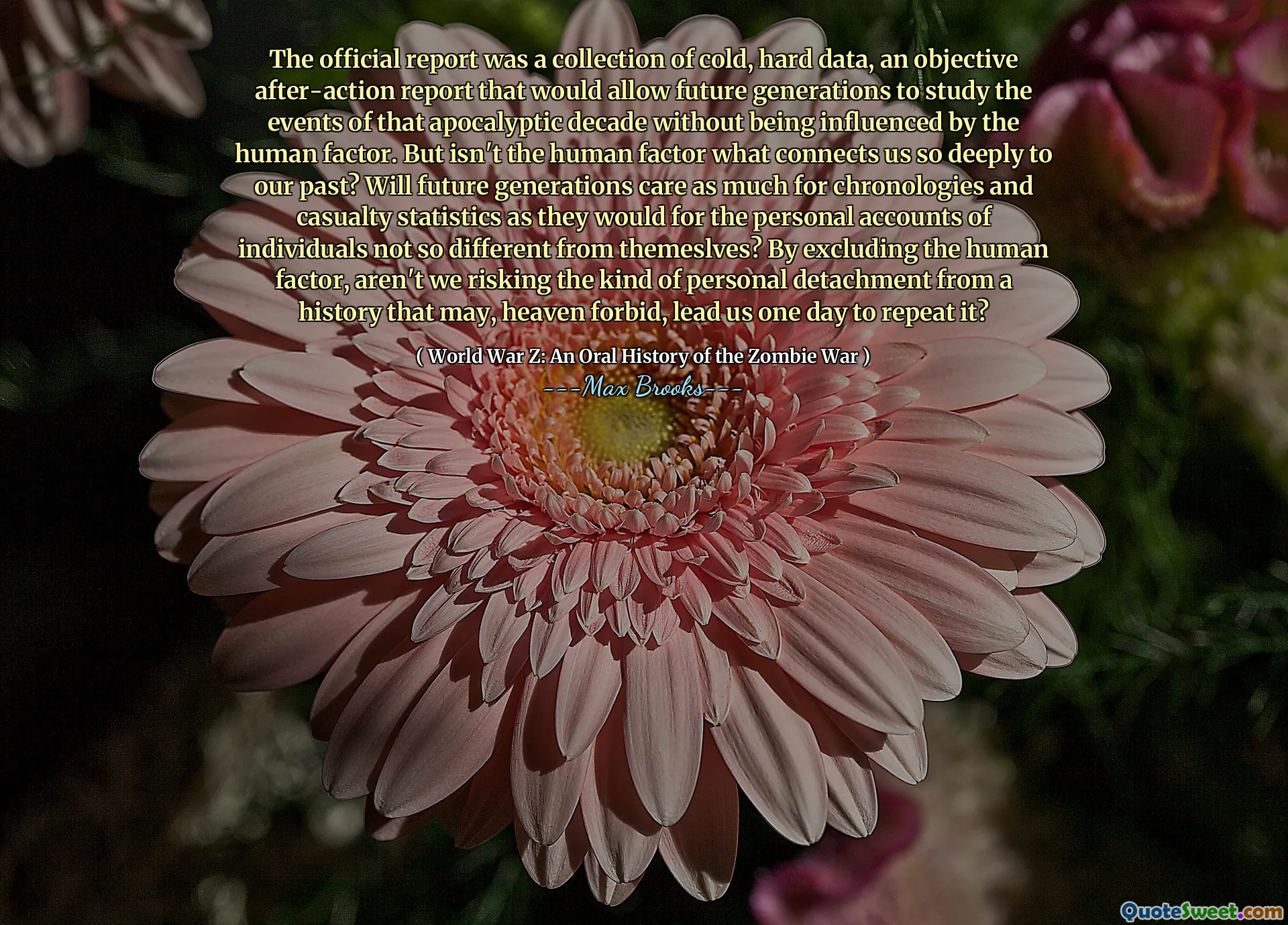
The official report was a collection of cold, hard data, an objective after-action report that would allow future generations to study the events of that apocalyptic decade without being influenced by the human factor. But isn't the human factor what connects us so deeply to our past? Will future generations care as much for chronologies and casualty statistics as they would for the personal accounts of individuals not so different from themeslves? By excluding the human factor, aren't we risking the kind of personal detachment from a history that may, heaven forbid, lead us one day to repeat it?
The official report compiled during the apocalyptic decade focused solely on objective data, aiming to serve future generations as a factual reference devoid of human emotion. This approach, while useful in creating a clear historical record, overlooks the emotional connections that personal stories provide. Such narratives evoke empathy and resonance with the human experience, serving as vital links to our past.
Excluding the human element from historical accounts risks fostering a sense of detachment from significant events. When future generations examine dry statistics and timelines, they may miss the deeper lessons that come from individual experiences and storytelling. This disconnection could be detrimental, as it may lead society to repeat the mistakes of the past due to a lack of understanding and empathy towards those who lived through those moments.











